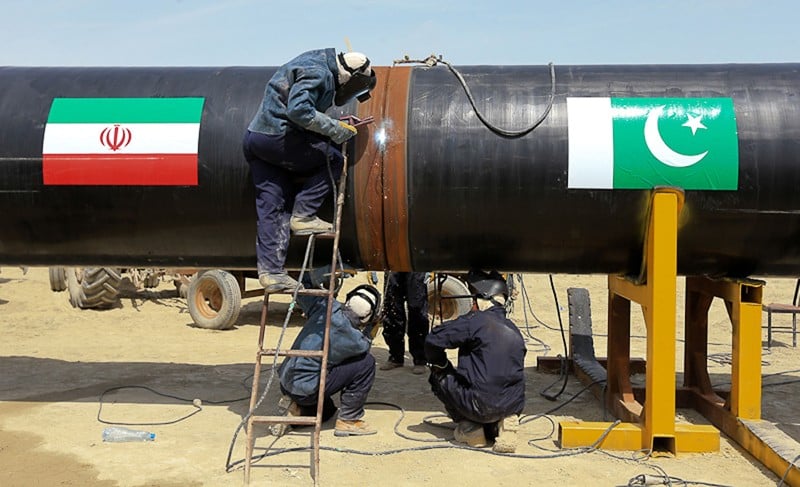
Better relations with Iran bode well for the state of Pakistan. These might allay the charges of a ‘Sunni state’

The nuclear deal cut between Iran and the P5+1 has repercussions for the entire world, it seems. The erstwhile geostrategic order might see a major shuffle in the wake of this one deal. Pakistan being the next-door neighbour, sharing a 900 kilometre long border with Iran, is no exception. The mood in Pakistan is of jubilation, largely on account of the expected fulfillment of its energy needs.
The deal might see the completion of the much-awaited Iran Pakistan gas pipeline, the topmost agenda item between the two countries, a project that was delayed to avoid the pressure of the US and EU leading to possible sanctions for doing business with Iran.
The jubilation must be restrained though. There were strong geopolitical factors that restrained Pakistan and Iran to go ahead with the projected pipeline that was signed up in the mid-1990s. A lot happened in these twenty years and Pakistan would need some subtle realignment in its foreign policy before it can expect Iran to fuel its energy starvation.
The pipeline project has stayed in the grey all these years. The cause of delay was as much the fear of US and EU sanctions as it was the relationship that Pakistan had cultivated with Saudi Arabia and some Gulf countries post 1979. Though Pakistan did not count Iran among its enemy countries, in practical terms, having placed itself in the pro-US camp, there was no real business possible between the two states.
Therefore, in the intervening years, one saw among other delaying tactics offers by one ‘friendly’ country to bear the entire cost of another gas pipeline -- Turkmenistan, Afghanistan, Pakistan, India (TAPI) -- in place of the Iran-Pakistan one. The fact that it included Afghanistan and India, two neighbours Pakistan had a troubled relationship with, this too proved to be a non-starter.
In fact, Afghanistan is one country that both Iran and India are interested in and about which they have a kind of convergence of interests -- against the Taliban of course. In that respect, Pakistan has already started a subtle shuffle of its foreign policy by playing the role of a peaceful broker between the Afghanistan government and Afghan Taliban in what have come to be known as the Murree talks.
The other cautious step that could, with hindsight of course, help facilitate better relations with Iran was Pakistan’s refusal to send its troops to fight along with Saudi forces against the rebels in Yemen. This is a tactical gain though Pakistan remains strategically committed to Saudi Arabia.
Also read: All about the negotiations, is it?
From Pakistan’s perspective, these are the underpinnings of a balanced foreign policy; with one exception -- India. Like Pakistan, India too is keen to do business with Iran, especially in energy. It has already helped construct a 200 kilometres road linking the Iranian town of Zarang with Delaram in Afghanistan. With Pakistan reluctant to provide it the transit road routes, this deal could, in the words of Rohan Joshi, "provide the necessary impetus for India and Iran to ramp up cooperation on the development of the Chabahar deep-water port. Chabahar’s strategic location will make it a critical transit point for trade between not only India, Iran and Afghanistan, but also provide connectivity to Central Asia and Europe…"
To come back to the topmost item, the gas pipeline, there are some domestic concerns too that no one is ready to bring up at the moment. Much of the pipeline is going to pass through the restive Iranian and then Pakistani part of Balochistan. On our part, with no let up in the insurgency in the province, the dividends of the pipeline seem a little ambitious at the moment.
The Baloch people are sensitive about the project. Nawab Akbar Bugti had said in 2005, a little before the current round of insurgency began with his death, "only the goodwill of the Baloch people can allow the proposed gas pipeline from Iran and Central Asia to India to pass through their soil". Given the sense of alienation, the nationalists would need assurances like "economic or social benefits for Balochistan’s under-privileged population" before they allow such a pipeline through their land.
All the foreign policy and domestic concerns aside, broadly, better relations with Iran bode well for the state of Pakistan. These might allay the charges of a ‘Sunni state’, given the sectarian strife aimed largely against the Shia population.